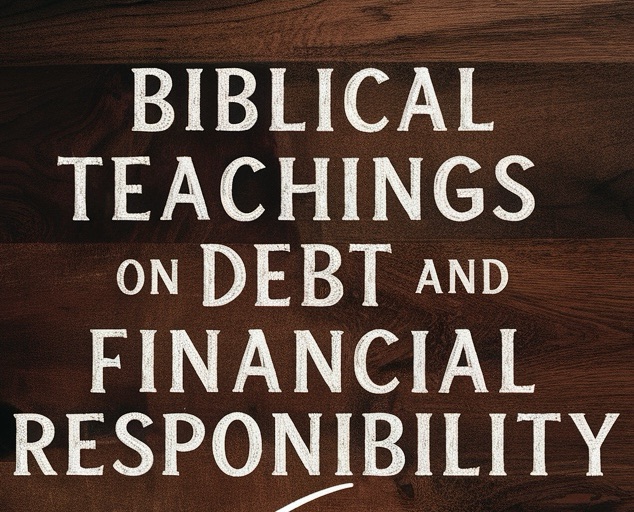What Can Colossians 3:12-17 Teach Us About Compassion in Times of Financial Hardship?
In times of financial difficulty, it’s easy to become ensnared in a web of worry and self-concern, overlooking the power and necessity of compassion—not only towards others but also towards ourselves. Colossians 3:12-17, with its profound call to “clothe yourselves with compassion, kindness, humility, gentleness, and patience,” offers timeless wisdom on how to navigate life’s financial storms with grace and empathy. This passage reminds us that our true value isn’t measured by monetary wealth but by the richness of our character and the love we share, even in our most challenging moments.

Compassion: A Pillar of Strength
Compassion, as urged in Colossians 3:12, is the emotional response to another’s pain or suffering, involving an authentic desire to help. But it’s more than just a feeling; it’s a practice, especially relevant when financial hardships hit. It’s about seeing beyond our immediate struggles, recognizing the shared human experience of hardship, and reaching out in kindness. Compassion becomes a pillar of strength, grounding us in our humanity and reminding us of the interconnectedness of our struggles and triumphs.
Cultivating Self-Compassion During Financial Struggles
Financial hardship often brings with it a harsh inner critic. Colossians 3:12-17 encourages us to extend the same compassion we’re called to show others to ourselves. Self-compassion means acknowledging our financial struggles without judgment, treating ourselves with the same kindness and understanding we’d offer a friend in a similar situation. It’s recognizing that being in financial distress does not reflect our worth or God’s love for us.
Compassion in Action: Building Community and Understanding
This scripture doesn’t just call for compassion in theory; it beckons us to put it into action. In times of financial hardship, this might mean sharing resources within a community, offering support to those in similar or worse situations, or volunteering time and skills to help others. It’s about building a community where everyone’s basic needs are met, rooted in the understanding that we’re all part of a larger, interconnected family.
The Role of Compassion in Financial Recovery
As we navigate through financial recovery, compassion remains a crucial guide. It encourages us to make ethical financial decisions, prioritize our well-being, and support others in their journey. Compassion informs our approach to financial planning, emphasizing the need for patience and gentleness with ourselves and our circumstances.

Embodying Colossians 3 in Financial Hardship
Embodying the teachings of Colossians 3:12-17 during financial hardship challenges us to live out our values in the face of adversity. It calls us to a higher standard of interaction with ourselves and others, marked by compassion, kindness, and patience. As we strive to embody these virtues, we find that our journey through financial hardship can lead to profound personal growth and a deeper sense of community connection.
How Does Forgiveness Facilitate Financial Recovery?
In the path towards financial recovery, forgiveness might seem like an intangible, even unnecessary, step. Yet, the wisdom of Colossians 3:13 shines a light on forgiveness as a crucial element not just for personal peace, but for practical financial recovery. “Bearing with one another and forgiving one another, if anyone has a complaint against another; even as Christ forgave you, so you also must do.” This divine counsel underscores forgiveness as a transformative force, capable of reshaping our financial journey and relationships.
Forgiveness, particularly in financial contexts, involves releasing bitterness and resentment—emotions that can cloud judgment and hinder decision-making. When financial disputes arise, whether with family members, business partners, or oneself, they often carry a heavy emotional toll. Holding onto these grievances can stifle progress and prevent the formulation of clear, constructive financial strategies moving forward.
Rebuilding Trust Through Forgiveness
Trust is the cornerstone of any financial relationship. Forgiveness plays a pivotal role in mending bridges burnt by financial disagreements or missteps. By choosing forgiveness, we open the door to rebuilding trust, enabling cooperation and more effective problem-solving. This is especially critical in financial recovery, where collaboration and clear communication are key.
Forgiveness and Personal Financial Habits
On a personal level, forgiving oneself for past financial mistakes is vital. Self-forgiveness allows for a healthier relationship with money, free from the shackles of past regrets. It fosters a forward-looking perspective, encouraging better financial habits and decisions. This mindset shift is essential for anyone on the path to financial recovery, as it paves the way for positive change.
The Role of Community Support
Forgiveness also strengthens community bonds, creating a support network that is crucial during financial recovery. In forgiving and being forgiven, we foster a culture of empathy and mutual support. This community can provide practical advice, emotional support, and sometimes even financial assistance or opportunities.
For those seeking guidance and solace during financial challenges, resources like Your 24/7 Bible Hotline for Life’s Emergencies offer invaluable support, drawing from the deep wells of spiritual wisdom to navigate life’s storms.

What Does the Bible Say About Overcoming Financial Hardship?
Financial challenges are a part of life that many of us will face at some point. It’s easy to feel alone and overwhelmed during these times. However, the Bible offers wisdom and comfort, providing guidance on how to navigate financial difficulties. Let’s explore what the Bible says about overcoming financial hardship through faith, perseverance, and wise stewardship.
Trusting in God’s Provision
Philippians 4:19 states, “And my God shall supply all your need according to His riches in glory by Christ Jesus.” This verse is a powerful reminder that our provision comes from God. It encourages us to place our financial worries in His hands, trusting that He knows our needs and will provide for us. This trust doesn’t negate our responsibility to manage our finances wisely but reassures us that we are not alone in our struggles.
The Wisdom of Proverbs on Financial Prudence
The Book of Proverbs is rich with advice on financial management and the dangers of mismanaging wealth. Proverbs 22:7 says, “The rich rules over the poor, and the borrower is servant to the lender.” This verse highlights the importance of living within our means and avoiding debt that can enslave us. Financial prudence, according to Proverbs, involves planning, saving, and avoiding unnecessary debt.
Generosity in Times of Need
Even in times of financial hardship, the Bible speaks about the blessings of generosity. Proverbs 19:17 tells us, “He who has pity on the poor lends to the Lord, And He will pay back what he has given.” This verse suggests that by helping others, we are serving God Himself, who will not forget our kindness. Generosity can be a pathway out of financial hardship, creating a cycle of blessing that benefits both the giver and the receiver.
Seeking Wisdom and Counsel
Proverbs 15:22 advises, “Without counsel, plans go awry, But in the multitude of counselors they are established.” Financial recovery often requires seeking advice from those more experienced or knowledgeable. This might mean consulting financial advisors, joining support groups, or participating in financial education programs. The Bible encourages us not to isolate ourselves with our problems but to seek wisdom and guidance from others.
The Role of Hard Work and Diligence
2 Thessalonians 3:10-12 offers a practical admonition: “For even when we were with you, we commanded you this: If anyone will not work, neither shall he eat.” This passage reminds us of the value of hard work and personal responsibility in overcoming financial hardship. While the Bible assures us of God’s provision, it also calls us to diligence and industriousness as part of our stewardship.
The Bible offers a multifaceted approach to dealing with financial hardship, emphasizing trust in God’s provision, wise stewardship, generosity, seeking counsel, and hard work. These principles serve as a foundation not only for overcoming financial challenges but for living a life that reflects our faith and values.
As an Amazon Associate we earn from qualifying purchases through some links in our articles.



